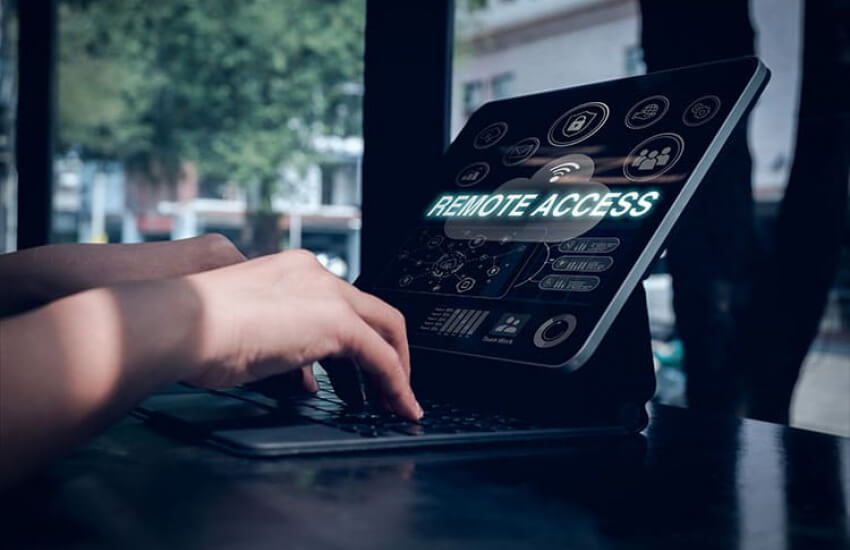Privacy vs. Security Striking a Balance with Video Surveillance

Nowadays, almost every home, office, store, street, etc., has some means of surveillance cameras. Whether it is a CCTV or an IP camera, it can monitor the area and provide real-time data to the viewers. Because of this, security has increased a lot over the years.
However, having such cameras everywhere you go, from malls to workplaces, raises one question. The discord between security and privacy has been increasing. Due to the advancement of surveillance cameras, now many places can record HD pictures of people in the area.
So, let’s discuss the topic and try to find the right balance between the two ends.
Perks of Having Surveillance Systems: the Security Side
It is without question that security cameras have increased the safety of areas by many folds. Because of them, owners of properties gained many advantages. Some are as follows-
- Deterring Criminals: Usually, when there is a sign with the writing ‘CCTV Cameras are monitoring this Area,’ criminals think many times before committing any crimes there. Hence, it is reducing the crime rates.
- Traffic Control: Whether it is to maintain traffic laws, keep track of the traffic, or investigate following any accident, having surveillance cameras on the roads can help significantly.
- Public Safety: You can worry less about robbery, hijacking, pickpocketing, and such issues while in any public space if there are security cameras nearby.
- Aid in Investigations: Law enforcers use surveillance camera footage as evidence while identifying or looking for any suspect. It can also help find missing persons.
- Quick Response During Emergency: If someone falls in any accident, disaster, sudden illness, or other emergencies, help can come quicker if the place is being monitored. It can reduce the risk of being stuck in critical conditions without hope of incoming help.
Privacy Issues with Surveillance Cameras: the Privacy Side
On the other side, because of constant surveillance at every place, the ethical worries of privacy breaches are rising every day. The authorities must be aware of what types of privacy video surveillance break. For example-
- Mass Monitoring: The fact that everyone at a workplace or mall is being monitored constantly is a thing that many find questionable. In this case, the reduction of anonymity and consent is a concern.
- Privacy Breach: Of course, recording the movement, activities, and even speech of a person is a significant breach of privacy. One does not want to say something negative about their boss only to get it recorded.
- Footage Storing: Different places often keep the CCTV or IP camera footage for a long time. Meanwhile, many surveillance systems allow remote viewing, making it impossible to track where or to whom the footage may end.
It may also raise the issue of people misusing the video data for other usage instead of security purposes.
- Security Cameras in Private Places: Some property owners often keep surveillance cameras in private places, which may fall within criminal activities. For example, sites like hotel rooms, changing rooms, or such mustn’t have any cameras. The laws in many places forbid this act.
- Discrimination: Depending on the scope and area of security, it may raise trust issues and discriminatory questions among people. An example will be setting up more surveillance within the working field of one single group than the others in a workplace.
How to Put a Balance Between Security Cameras and the Privacy of People
It is possible to use security cameras without breaching people’s privacy with the proper planning and correct steps. Here are some examples-
- Data Storing Rules: There should be clear-cut rules about storing video data and how the owner of the footage uses it. It should be only for security and nothing else, and there should be guidelines for their usage.
Additionally, the footage should not be in storage for a long time. There must be a limit to the time, and once it is over, the footage owner must properly dispose of it.
- Clarity About Surveillance: The owner or authorities of a ground or property must clarify the surveillance part to the workers, public, or others there. The cameras shouldn’t be too hidden.
- Proper Enforcement of Surveillance Camera Privacy Laws: There are many laws regarding the unlawful use of surveillance cameras and video footage. These rules differ based on the state. Law enforcers should enforce them properly and ensure accountability for misuse or oversight.
- Inspections: Hotel and mall inspections should include checking for unwanted cameras at private places, such as hotel rooms or changing rooms, and acting accordingly.
Final Note
The application of surveillance cameras is for increasing security in any area. However, the decrease in privacy is a concern rapidly growing as the technology is improving. Since the new features of security cameras are adding night vision, facial recognition, high-resolution video, etc., the rules and laws should also be developed to cope with the situation.


